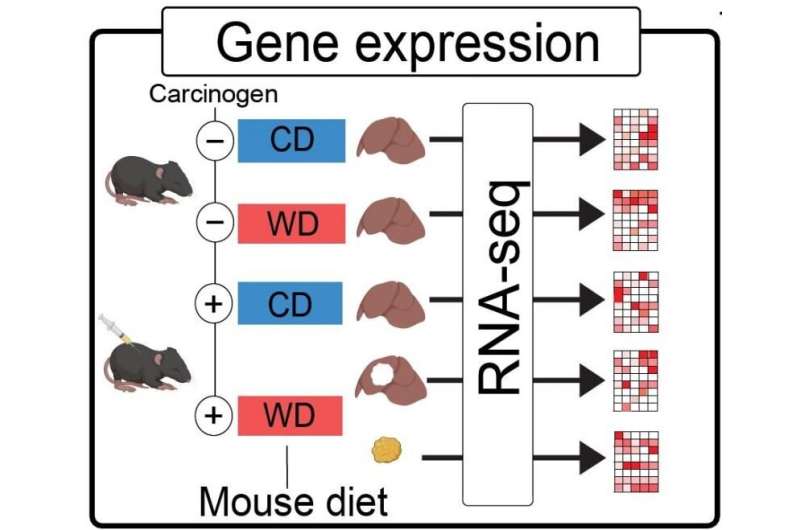Researchers map the effects of dietary nutrients on disease
Date:
January 27, 2023
Source:
The Francis Crick Institute
Researchers have created a tool to predict the effects of different diets on cancer cells and healthy cells in mice. Their work could help unravel the subtle metabolic changes associated with different types of nutrients and improve our understanding of the link between diet and disease.
Metabolic Network Analysis (MNA):interactions between different nutrients and metabolic pathways
The new tool, called Metabolic Network Analysis (MNA), is based on a technique known as network analysis. This approach allows researchers to map the interactions between different nutrients and metabolic pathways in order to understand how they interact with each other. By mapping out these networks, MNA can identify which dietary components are most likely to affect disease risk by influencing cancer cell metabolism.
The team used their MNA model to analyse data from over 3 million cells across 15 different types of cancers and healthy tissues. They found that certain combinations of dietary fats were associated with increased risk for some cancers while others had no effect or even decreased the risk for those same cancers when consumed together in specific ratios."
This research provides an important step forward towards understanding how diet affects health outcomes at a molecular level – something that has been difficult until now due to the complexity of metabolic processes involved in nutrition-related diseases like cancer. With this knowledge, scientists can begin designing tailored diets for individuals depending on their genetic makeup and personal history – helping them make informed decisions about what foods will best support their health goals without risking unnecessary harm through trial-and-error approaches or ‘one size fits all’ advice from general practitioners!
Researchers have mapped the effects of dietary nutrients on disease to better understand how nutrition can be used to prevent and treat various diseases[1][2][3].
For example, a study published in the Journal of the Academy of Nutrition and Dietetics found that skipping meals, fasting, and eating meals too close together may be linked to increased cardiovascular or all-cause mortality [4].
The Centers for Disease Control and Prevention (CDC) also provides interactive data on nutrition-related topics such as breastfeeding, fruits and vegetables, physical activity, sugary drinks, television viewing and nutrition. obesity/weight[5]. These data can help researchers better understand the relationship between diet and health outcomes.
Overall, researchers continue to map the effects of dietary nutrients on disease to better understand how nutrition can be used to improve health outcomes.[1][2][3][4][5]
Frederick Clasen, first author and joint Ph.D. student at Crick and King's College London, said: “The potential applications of this work are considerable. We can now see which changes in diet have a real impact on cellular metabolism, and which have very little effect because cells are already programmed to draw missing nutrients from their surroundings."
Saeed Shoaie, Head of the Translational Systems Biology Group at the Faculty of Dentistry, Oral and Craniofacial Sciences, King's College London, said: "To further increase the accuracy of our model predictions, we are now generating models of more sophisticated metabolisms, which take into account how different organs exchange metabolites and how bacteria in the gut influence the nutrients available to tissues.
Anastasiou concludes, "Our approach can be used to guide dietary changes that complement treatments for different diseases. But the most effective use of this understanding will be to prevent more disease by helping us select the foods we eat."
TRENDS :


